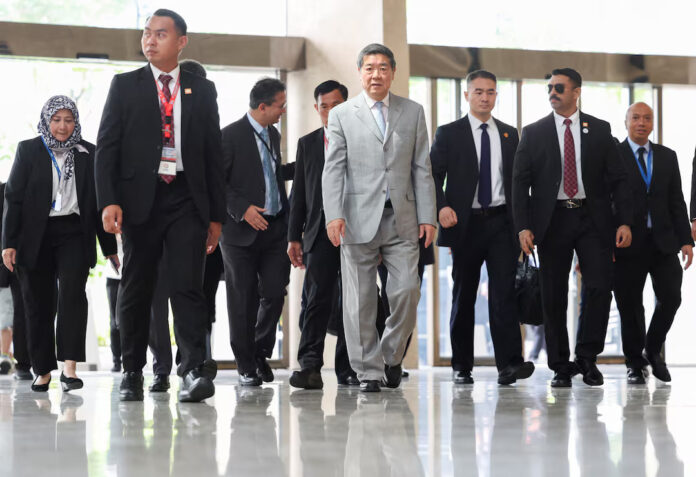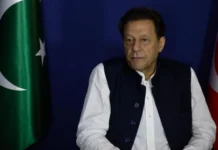
Senior U.S. and Chinese officials began urgent trade talks in Malaysia on Saturday, aiming to prevent a new round of tariff hikes and salvage next week’s planned meeting between U.S. President Donald Trump and Chinese President Xi Jinping.
The discussions, held on the sidelines of the Association of Southeast Asian Nations (ASEAN) summit at Kuala Lumpur’s Merdeka 118 tower, bring together U.S. Treasury Secretary Scott Bessent, Trade Representative Jamieson Greer, and Chinese Vice Premier He Lifeng.
They are joined by China’s top trade negotiator Li Chenggang in what analysts describe as a last-ditch effort to defuse spiraling tensions between the world’s two largest economies.
The talks come just days after Trump threatened to impose new 100% tariffs on Chinese imports beginning November 1, in retaliation for Beijing’s expanded export controls on rare earth magnets and critical minerals.
Those Chinese restrictions, alongside an expanded U.S. export blacklist covering thousands more Chinese firms, have strained the fragile truce both sides struck earlier this year.
According to U.S. officials, the current talks aim to ensure that the long-anticipated Trump–Xi meeting proceeds as planned next Thursday at the Asia-Pacific Economic Cooperation (APEC) summit in South Korea.
The agenda for that meeting is expected to include possible tariff relief, limited technology trade concessions, and renewed Chinese commitments to purchase U.S. soybeans.
Before departing Washington on Friday night, Trump told reporters that the discussions would also touch on Taiwan, Hong Kong pro-democracy activist Jimmy Lai’s imprisonment, and potential cooperation with China on Russia-related issues.
“We have a lot to talk about with President Xi, and he has a lot to talk about with us. I think we’ll have a good meeting,” Trump said aboard Air Force One.
Analysts say the stakes are high. “Bessent, Greer, and He must first find a way to de-escalate tensions over U.S. technology export curbs and China’s rare earth controls,” said Josh Lipsky, international economics chair at the Atlantic Council. “But I’m not sure the Chinese can agree to that, it’s the primary leverage that they have.”
The current trade truce, first negotiated in Geneva in May and later extended in London and Stockholm, temporarily lowered tariffs to 55% on U.S. goods and 30% on Chinese exports. It is set to expire on November 10.
But it began unraveling after Washington expanded its export blacklist in late September, and Beijing retaliated on October 10 with sweeping rare earth restrictions targeting military supply chains.
On Friday, the Trump administration further inflamed tensions by launching a new tariff probe into China’s “apparent failure” to comply with the 2020 “Phase One” trade deal.
Scott Kennedy of the Center for Strategic and International Studies warned that the outcome of the Kuala Lumpur talks could determine the future of global trade stability.
“If they make a deal, their gambit will have paid off. If there’s no deal, then everyone will need to prepare for things to get much nastier,” he said.
Trump is due to arrive in Malaysia on Sunday to join the ASEAN summit before continuing to Japan and South Korea, where the fate of U.S.–China trade relations may soon be decided.
Source: Reuters
Written By Rodney Mbua


















